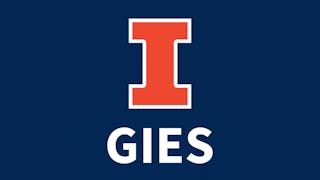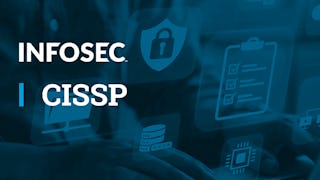- Browse
- Accounting
Results for "accounting"
 Status: PreviewPreviewU
Status: PreviewPreviewUUniversity of Pennsylvania
Skills you'll gain: Fundraising, Non-Profit Accounting, Philanthropy, Law, Regulation, and Compliance, Governance, Compliance Management, Regulatory Compliance, Lobbying, Labor Law, Tax Compliance, Accountability, Tax Laws, Advocacy, Organizational Structure, Social Impact
4.9·Rating, 4.9 out of 5 stars15 reviewsIntermediate · Course · 1 - 4 Weeks
 Status: Free TrialFree TrialU
Status: Free TrialFree TrialUUniversity of Illinois Urbana-Champaign
Skills you'll gain: Business Analytics, Business Analysis, Business Strategy, Accounting, Organizational Structure, Organizational Strategy, Strategic Communication, Business Communication, Marketing, Financial Accounting, Marketing Strategies, Innovation, Product Lifecycle Management
4.9·Rating, 4.9 out of 5 stars16 reviewsBeginner · Course · 1 - 3 Months
 Status: NewNewStatus: PreviewPreviewU
Status: NewNewStatus: PreviewPreviewUUniversity of Cambridge
Skills you'll gain: Financial Acumen, Variance Analysis, Financial Forecasting, Cash Flows, Financial Analysis, Financial Modeling, Financial Reporting, Cost Estimation, Financial Statements, Return On Investment, Accounting, Project Estimation, Budgeting, Microsoft Excel, Business Modeling
Beginner · Course · 1 - 3 Months
 Status: Free TrialFree Trial
Status: Free TrialFree TrialSkills you'll gain: Identity and Access Management, Single Sign-On (SSO), User Provisioning, User Accounts, Security Assertion Markup Language (SAML), Authorization (Computing), Authentications, Role-Based Access Control (RBAC), OAuth, Multi-Factor Authentication
4.3·Rating, 4.3 out of 5 stars7 reviewsAdvanced · Course · 1 - 4 Weeks
 Status: PreviewPreviewO
Status: PreviewPreviewOO.P. Jindal Global University
Skills you'll gain: Economics, Economic Development, International Finance, Financial Policy, Business Economics, Supply And Demand, Socioeconomics, Policy Analysis, Public Policies, Accounting, Growth Strategies, Critical Thinking
Build toward a degree
4.6·Rating, 4.6 out of 5 stars10 reviewsBeginner · Course · 1 - 3 Months
 Status: Free TrialFree TrialU
Status: Free TrialFree TrialUUniversity of Colorado Boulder
Skills you'll gain: Sustainable Business, Sustainability Reporting, Corporate Sustainability, Environmental Social And Corporate Governance (ESG), Sustainable Systems, Sustainable Development, Sustainability Standards, Business Reporting, Annual Reports, Supply Management, Supply Chain Planning, Social Impact, Initiative and Leadership, Empowerment, Environmental Issue, Product Lifecycle Management, Climate Change Mitigation, Organizational Structure, Accounting, Marketing
Build toward a degree
4.9·Rating, 4.9 out of 5 stars18 reviewsIntermediate · Course · 1 - 3 Months
 Status: PreviewPreviewR
Status: PreviewPreviewRRutgers the State University of New Jersey
Skills you'll gain: Prompt Engineering, Scalability, Large Language Modeling, Governmental Accounting, Unstructured Data, LLM Application, Financial Data, Generative AI, Accounting, Artificial Intelligence, Robotic Process Automation, Financial Reporting, Automation, Application Programming Interface (API), User Interface (UI)
Intermediate · Course · 1 - 4 Weeks
 Status: Free TrialFree TrialT
Status: Free TrialFree TrialTThe State University of New York
Skills you'll gain: Business Planning, Working With Children, Business, Small Business Accounting, Tax Management, Policy Development, Parent Communication, Contract Management, Revenue Management, Budgeting, Insurance, Cost Estimation, Payment Processing
4.9·Rating, 4.9 out of 5 stars18 reviewsBeginner · Course · 1 - 3 Months
 Status: PreviewPreview
Status: PreviewPreviewSkills you'll gain: Social Impact, Sustainable Development, Return On Investment, Sustainability Reporting, Needs Assessment, Program Evaluation, Performance Reporting, Project Scoping, Goal Setting, Project Performance, Risk Analysis, Strategic Communication, Stakeholder Engagement, Standard Accounting Practices, Data Collection
4.6·Rating, 4.6 out of 5 stars17 reviewsIntermediate · Course · 1 - 4 Weeks
 Status: NewNewStatus: Free TrialFree Trial
Status: NewNewStatus: Free TrialFree TrialSkills you'll gain: Generally Accepted Accounting Principles (GAAP), Financial Accounting, Standard Accounting Practices, Technical Accounting, Financial Reporting, Financial Statements
5·Rating, 5 out of 5 stars13 reviewsMixed · Course · 1 - 4 Weeks
 Status: PreviewPreviewP
Status: PreviewPreviewPPontificia Universidad Católica del Perú
Skills you'll gain: Financial Statements, Financial Statement Analysis, Financial Accounting, Income Statement, Accounting, Financial Analysis, Balance Sheet, Profit and Loss (P&L) Management, Working Capital
4.7·Rating, 4.7 out of 5 stars15 reviewsBeginner · Course · 1 - 4 Weeks
 Status: PreviewPreviewM
Status: PreviewPreviewMMacquarie University
Skills you'll gain: Dashboard, Data Cleansing, Excel Formulas, Data Visualization, Microsoft Excel, Spreadsheet Software, Data Storytelling, Data Validation, Data Integrity, Technical Documentation, Business Intelligence, Accounting and Finance Software, Depreciation, Finance, Loans, Automation
3.7·Rating, 3.7 out of 5 stars6 reviewsIntermediate · Course · 1 - 3 Months
In summary, here are 10 of our most popular accounting courses
- Introduction to Nonprofit Law: University of Pennsylvania
- Organizational Concepts and Language: University of Illinois Urbana-Champaign
- Finance for Non-finance Professionals: University of Cambridge
- CISSP Domain 5: Identity and Access Management (IAM): Infosec
- Macroeconomics: Foundations and Insights: O.P. Jindal Global University
- Leading the Circular and Sustainable Business: University of Colorado Boulder
- Generative AI & Governmental Financial Reporting: Rutgers the State University of New Jersey
- Child Care as a Business: The State University of New York
- How to Conduct a Social Impact Assessment with SROI: Coursera
- Master US GAAP: Analyze Foundations & Codification: EDUCBA










